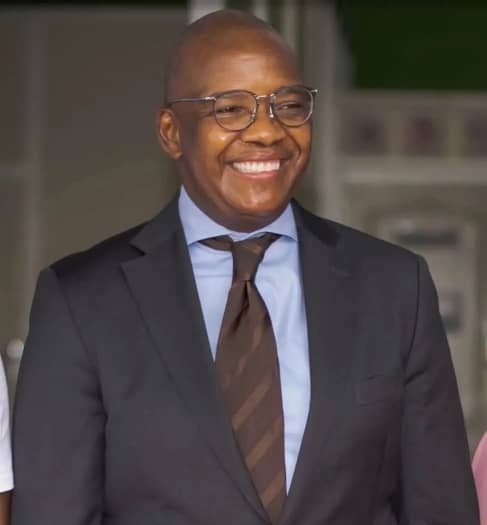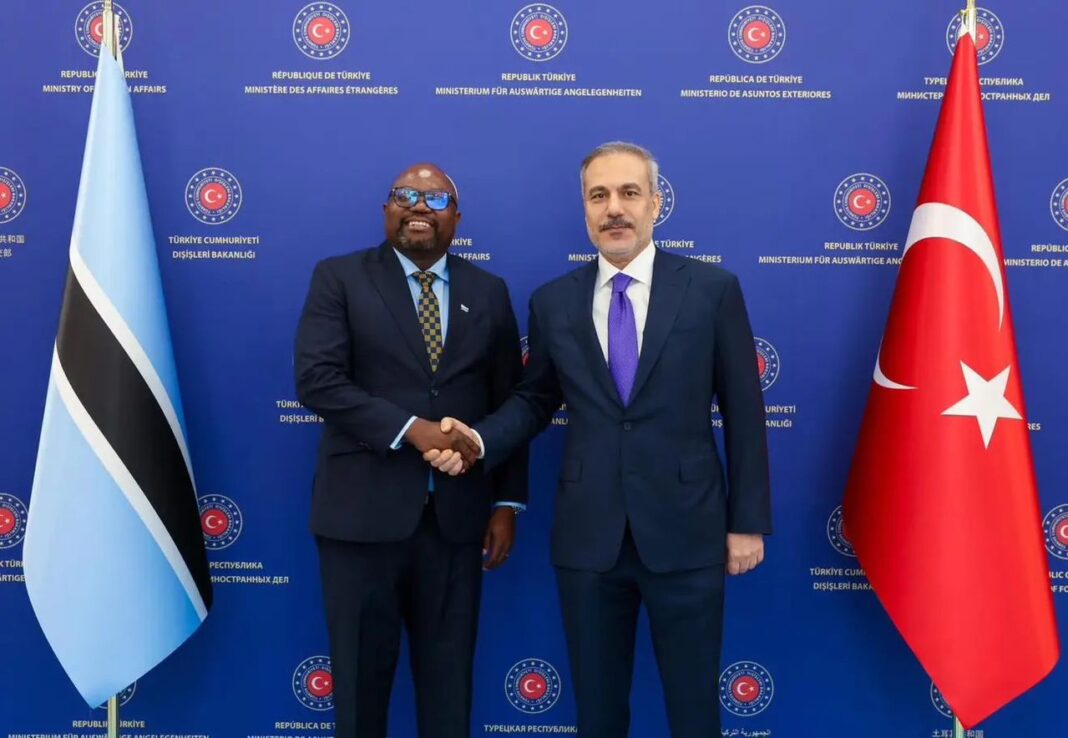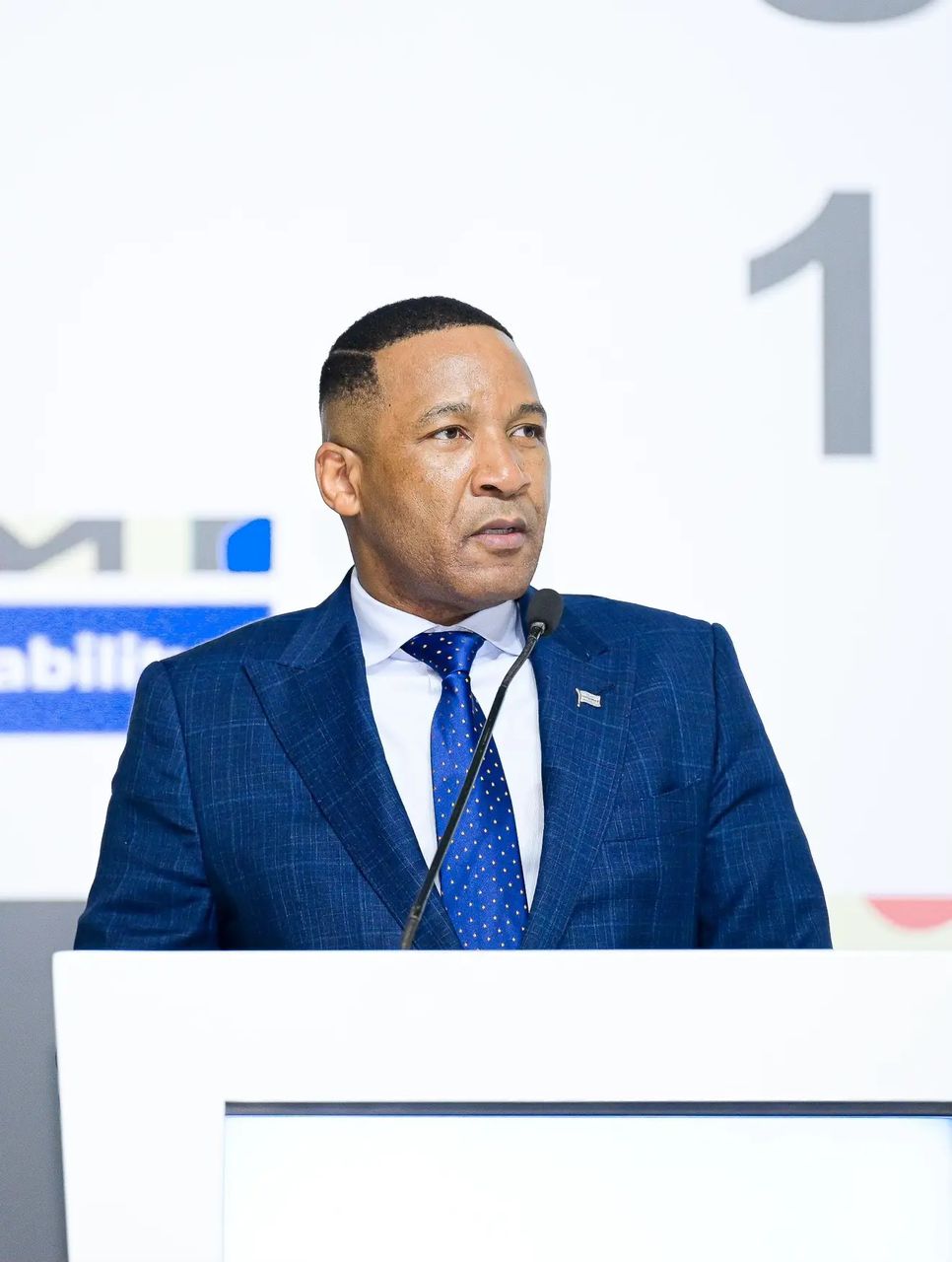Boemo Phirinyae
The BDP can huff and puff as it likes, and pantsola to all the songs, but it should not take us for fools as we can see through its political theater. Mpho Balopi is scheduled to lead a delegation of the Botswana Democratic Party (BDP) on August 23rd to Serowe to issue a formal apology to Bangwato. According to Balopi, this act of contrition comes after “reflection on past actions”, specifically, the denial of the Bagammangwato’s right to use their kgotla to discuss matters concerning their Kgosikgolo, Ian Khama. The BDP now concedes that the decision was “wrong and disrespectful to Botswana’s traditions.”
On the surface, this may sound like an overdue step towards reconciliation. However, beneath the carefully crafted language lies a far deeper wound, one that cannot be neatly wrapped in diplomatic niceties. The events in Serowe under the Mokgweetsi Masisi regime were not a mere administrative misstep or misjudgment as Balopi himself would like to frame them. They were a calculated and forceful suppression of a tribe’s right to self-determination within their cultural and traditional structures. That truth must be said exactly as it happened.
When Bangwato sought to convene at their kgotla, they were met not with dialogue, but with the full force of state security machinery. Security forces, acting on orders from the very government the BDP still led, physically barred entry to the kgotla. Elderly men and women, respected custodians of tradition, were shoved, beaten, and humiliated on the very grounds that should have been a sanctuary for their voices. These were not chaotic mobs or lawless gatherings, they were citizens and elders exercising an ancestral right to determine their path as a people.
The Masisi regime’s choice to deploy state power in such a brutal manner against unarmed civilians was more than an insult, it was an act of political intimidation. It sent a message, the authority of the state, under the control of the ruling party, could and would override centuries-old traditions if those traditions clashed with political interests. That day, the kgotla, a symbol of unity and open discourse was turned into a site of violence, fear and state overreach. This is the brutish sequence of events that Balopi, who seeks to conveniently forget, must be reminded off.
The BDP’s apology now comes wrapped in the rhetoric of renewal, with Balopi at the helm seeking to heal old wounds. It would be dangerously naïve to accept this gesture without scrutiny. Balopi and the rest of the current leadership were not outsiders to the events in question. They were part of the very machinery that allowed, endorsed, or remained silent in the face of the abuses in Serowe. For them now to point to Masisi alone as the sole architect of those wrongs is not just dishonest, it is condescending.
This attempt to isolate Masisi as the lone culprit ignores the collective nature of party governance. The BDP functions as a political organism, its decisions, especially on matters as politically sensitive as the Bangwato-Khama rift, were the product of consensus among its top leadership. Balopi, as a senior figure during the Masisi years, cannot credibly claim detachment from the culture of suppression that defined the government’s dealings with Serowe. The apology risks becoming less about genuine accountability and more about political expediency, a rebranding exercise to win back a constituency that has long been a political stronghold for the Khama family and a thorn in the BDP’s side since the fallout.
Moreover, the framing of this apology as a singular issue of denying access to Kgotla, deliberately narrows the scope of wrongdoing. Bagammangwato were not merely denied a meeting space, they were denied dignity, physically assaulted, and subjected to the intimidation of armed security forces on their own land. To reduce the matter to be about access to kgotla is to erase the violence, to sanitise the trauma, and to absolve those responsible from confronting the full moral weight of their actions. If the BDP are truly serious about reconciliation, the apology would be accompanied by a candid acknowledgment of these abuses, an admission of the party’s institutional culpability.
Bangwato, known for their resilience and communal strength, may choose to accept this apology in the spirit of peace and cultural grace. Forgiveness is, after all, a value deeply embedded in our setswana tradition. However, forgiveness does not require forgetting, to forget would be to risk normalizing the abuse of state power, to allow history to be rewritten in a way that erases the lived pain of those who endured it. It would also send a dangerous message to future leaders that such overreach can be excused with a few words of regret years later. The perpetrators must bear the full weight of their moral failure for as long as they live.
The August 23rd visit should not be the end of the conversation, it should be the beginning of a public reckoning. Bangwato and all Batswana deserve to hear, in plain language, that the events in Serowe were an abuse of power by a ruling party that placed its political survival above its duty to uphold the traditions and rights of its citizens. They deserve to know that those in positions of leadership, past and present, are willing to account for their roles, not hide behind the convenient scapegoating of one man.
The BDP’s hope, of course, is that the apology will serve as a political reset, smoothing over old animosities ahead of the next electoral cycle. History however, when remembered truthfully, has a way of cutting through political theatre. The images of elderly Bangwato being pushed and beaten at their own kgotla are not easily erased. Neither are the memories of barricades and armed security forces occupying where community debates should have taken place.
“Bagammangwato ba ga Mabiletsa” as referred in folklore to may accept the apology if they wish, but they should do so with their eyes wide open. They should not grant the BDP a clean slate, but to remind it that the past still shapes the present, and that respect for tradition, dignity, and human rights cannot be reduced to a campaign talking point. We shall wait to see if Balopi is genuine or he is just another character that the legendary music composer George Swabi described as “noga ya matodi ye lomang bosigo, e ya re e sena go loma e hodise”.



